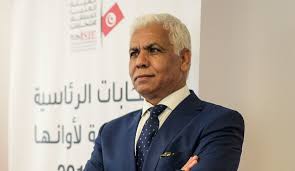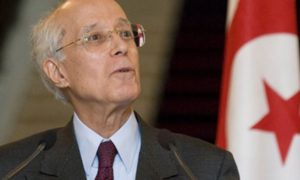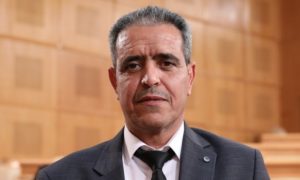10th Economic and Social Council Youth Forum
A Decade of Action: Building a Resilient Recovery
SIDE EVENT AT THE ECOSOC YOUTH FORUM
“Youth–Agents of change for transformative recovery of LDCs”
6 April 2021
Background
Youth development and youth engagement are cross-cutting issues in the 2030 Agenda for Sustainable Development and other internationally agreed frameworks. The Istanbul Programme of Action (IPoA) for the Decade 2011-2020 recognized that large youth populations[1] are an asset for the Least Developed Countries (LDCs) and calls for youth development through full and effective participation in economic, social and political life and access to education and productive employment to maximize their potential.
LDCs are low-income countries confronting severe structural impediments to sustainable development. They are highly vulnerable to economic and environmental shocks and have low levels of human assets. There are currently 46 countries in the world. A list of LDCs is available at https://www.un.org/ohrlls/content/profiles-ldcs.
In LDCs, roughly 60% of the population are under 25 years old. In Sub-Saharan Africa, which is home to the vast majority of the LDCs, people between the age of 15 and 24 years currently account for 20% of the total population. Meanwhile, the number of adolescents and youth aged 15 to 24 years is projected to grow from 207 million in 2019 to 336 million by 2050. This demographic structure and expected growth of young people in LDCs presents a powerful opportunity for LDCs to accelerate progress towards the Sustainable Development Goals (SDGs), and has positioned youth at the forefront of social and economic change and development. Youth-centered development plans including investment in youth human capital and engaging youth in decision-making and governance have become a prerequisite for building peace and justice and achieving equitable, inclusive and sustainable development across the LDCs.
In the past decade during the implementation of the IPoA, young people in LDCs made positive contributions towards the achievement of the targets and objectives of the IPoA as the bulk of the labor force and as a crucial pillar in nation-building in LDCs in conflict and post-conflict situations. Young people’s innovation and entrepreneurship are driving the productive capacity for structural transformation of the LDCs. Their constructive role in community building has promoted social cohesion and generated positive impacts on peace building. What’s more, in the face of economic adversity and environmental hardship, young people in LDCs have demonstrated resilience to overcome challenges and become global advocates for climate action.
However, young people in LDCs are a vulnerable segment of the society facing formidable challenges. Unemployment, lack of access to quality education and health care, inadequate social protection, gender-based violence, limited access to finance and opportunities for skills development have restricted young people from unleashing their potential to act as agents of change for sustainable development. Excluding the young from decision-making and inclusive governance have also made young people more susceptible to resorting to violence and recruitment efforts of terrorist organizations, further jeopardizing peace and stability in fragile LDCs.
The cascading effects of the COVID-19 pandemic have exacerbated the situation faced by youth in LDCs, compounding their pre-existing challenges. Containment measures and contraction of global demand have affected labor markets in LDCs. Reduced income and job loss have threatened the livelihoods of young people, and worsened the burden on their already fragile households. More often, young people are engaged in informal economy across LDCs. Their economic and social wellbeing are worsened because of lack of unemployment benefits and social safety net.
The COVID-19 has inflicted a heavy toll on the young population in LDCs, entrenching inequality and undermining human capital development. It has widened the digital divide between the developed world and LDCs. Access to online and remote learning is a major challenge in LDCs. In 2019, internet adoption in LDCs was at 19.1 per cent. During the health pandemic, a significant proportion of the youth in LDCs have been deprived of the opportunity to pursue e-education and online learning. Girls are particularly vulnerable to the negative impacts of education disruption due to school closures, and millions may not be able to return to school after the pandemic. Due to inadequate ICT infrastructure and unreliable energy supply in LDCs, youth in LDCs cannot fully leverage digital technologies to develop business opportunities and build the skillsets demanded by evolving job markets. The risk of becoming “a lost generation” is more pronounced among young people in LDCs and is disproportionately borne by girls in LDCs.
In building back better and greener, LDCs need to empower youth and place young people at the center of sustainable recovery strategies. The voices of the young need to be heard and their perspectives and aspirations for the future they want need to be incorporated in the development agenda for the post COVID-19 era. Governments in LDCs need to build an enabling environment that facilitates investment in skills and supports youth entrepreneurship. Development partners should increase financial and technical assistance to support youth development in LDCs. The robust and transformative recovery of LDCs will be elusive without harnessing the potential of the youth, and active engagement and contribution of young people.
The Fifth United Nations Conference on the Least Developed Countries (LDC5) will be held from 23 to 27 January 2022 in Doha, Qatar. A new 10-year programme of action for the LDCs will be adopted at a critical time, falling within the last 10 years of implementation of the 2030 Agenda for Sustainable Development and Sustainable Development Goals across the LDCs. The preparatory process of the LDC5 includes a youth track and a youth campaign to spotlight the pivotal role of youth in the delivery of the 2030 Agenda and fulfilling the ambitions of LDCs in the next programme of action. The youth track of the LDC5 aims to engage youth in decision-making processes, address the development needs of young people in LDCs in the face of emerging challenges, and to empower youth in advancing progress towards the goals and targets of the next Programme of Action. Preparations for LDC5 can be accessed at www.un.org/ldc5.
As part of the preparatory process of the LDC5 and in commemoration of the 10th anniversary of the ECOSOC Youth Forum, the Office of the High Representative for LDCs, LLDCs and SIDS (UN-OHRLLS) is organizing this side event. Bangladesh (tbc), Malawi (tbc), Qatar, Turkey, Major Group for Children and Youth (MGCY), and the International Coordination Meeting of Youth Organizations (ICMYO) are co-organizers of the side event.
The side event is open to young participants of the ECOSOC Youth Forum from both LDCs and their development partners, as well as representatives of the civil society and the private sector.
Objectives
The side event aims to provide a platform for youth of LDCs and development partners to share their perspectives on the role of youth in shaping the development agenda of LDCs and address the challenges in harnessing the potential of youth in LDCs in achieving the transformative recovery of LDCs. It also provides an opportunity for young people around the world to share experiences of influencing policy-making and developing innovative solutions to address emerging challenges and to achieve equitable, inclusive and sustainable development. The results of the discussion will feed directly into a Youth Declaration of LDCs. The discussion will also support the inter-governmental consultations on the new programme of action of LDCs to be adopted at the Fifth UN Conference on LDCs in January 2022 in Doha, Qatar.
Guiding Questions
- What are the impacts of COVID-19 on youth in LDCs? What is the role of young people in addressing the emerging challenges facing LDCs such as health pandemics, climate change, and how can young people leverage STI to accelerate progress towards the SDGs?
- How to elevate the role of young people in achieving an equitable, inclusive and sustainable recovery of LDCs after the COVID-19 pandemic? What needs to be done to empower youth in decision-making and governance in LDCs?
- What are the challenges in harnessing the potential of young populations in national development of LDCs? How to build the capacity of young people in LDCs in a Decade of Action and to better position youth in setting the development agenda?
- What should the new Programme of Action for the Least Developed Countries for the next 10 years include to achieve young people’s vision for a better and more sustainable future?
- How can young people in LDCs contribute to the creation and delivery of the new Programme of Action for the Least Developed Countries for the next 10 years?
- What is the role of young people from developed country partners in increasing public awareness and influencing political leadership to fulfil their commitment towards LDCs?
What's happening in Tunisia?
Subscribe to our Youtube channel for updates.















































